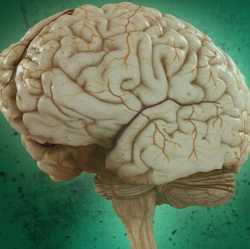
A chemical relative of aspirin is potentially useful in treating Alzheimer’s disease, according to a study by California scientists. In a mouse model of frontotemporal dementia, giving salsalate reversed memory loss and protected the hippocampus, a part of the brain essential for memory formation.
The drug appears to work by reducing toxic buildup of tau, a protein also implicated in Alzheimer’s. Most Alzheimer’s research has focused on tau’s more famous cousin, beta amyloid, long the prime suspect in Alzheimer’s. Both are abnormal forms of normal proteins. When altered, they become toxic and damage neurons, leading to their death. Several drugs targeting beta amyloid have reached the clinic, but none to date have been proven effective.
Salsalate is now being tested in several clinical trials, including one for another tau-related neurological disease, progressive supranuclear palsy, or PSP. Meanwhile, no drugs targeting tau are available for Alzheimer’s, say researchers led by scientists from the Gladstone Institutes at UC San Francisco.
Salsalate inhibits a process called acetylation, which makes tau more toxic, the study found. "One of the main enzymes that acetylates tau is p300, which can be inhibited by salicylate or SSA, an ancient drug commonly used as an NSAID," the study stated.
"Pharmacokinetically, SSA is quickly metabolized into its active component, salicylate. Unlike salicylate, aspirin (acetylsalicylate) leads to higher levels of ac-tau in cultured neurons. SSA and aspirin have been widely used to treat rheumatoid arthritis and related illnesses in the past decades, and work presumably via inhibition of cyclo-oxygenase (COX). Interestingly, patients taking NSAIDs, including salicylate and derivatives, have a reduced risk of AD."
Trials with more specific inhibitors of COX didn’t find a protective effect against Alzheimer’s, the study noted. That could be explained if the protective effect is actually due to inhibiting p300.
"Targeting tau acetylation could be a new therapeutic strategy against human tauopathies, like Alzheimer’s disease and FTD," said Dr. Eric Verdin, a co-senior author, in a press release. "Given that salsalate is a prescription drug with a long-history of a reasonable safety profile, we believe it can have immediate clinical implications."
However, Dr. Paul Aisen, director of the University of Southern California’s San Diego-based Alzheimer’s Therapeutic Research Institute, said it is unlikely that the approach will succeed.
"Interesting but very preliminary," Aisen said by email. "In my view, the likelihood that salsalate will prove to be an effective therapy for AD or other tauopathies is small. It is misleading to say that this work has ‘immediate clinical implications.’ ”
